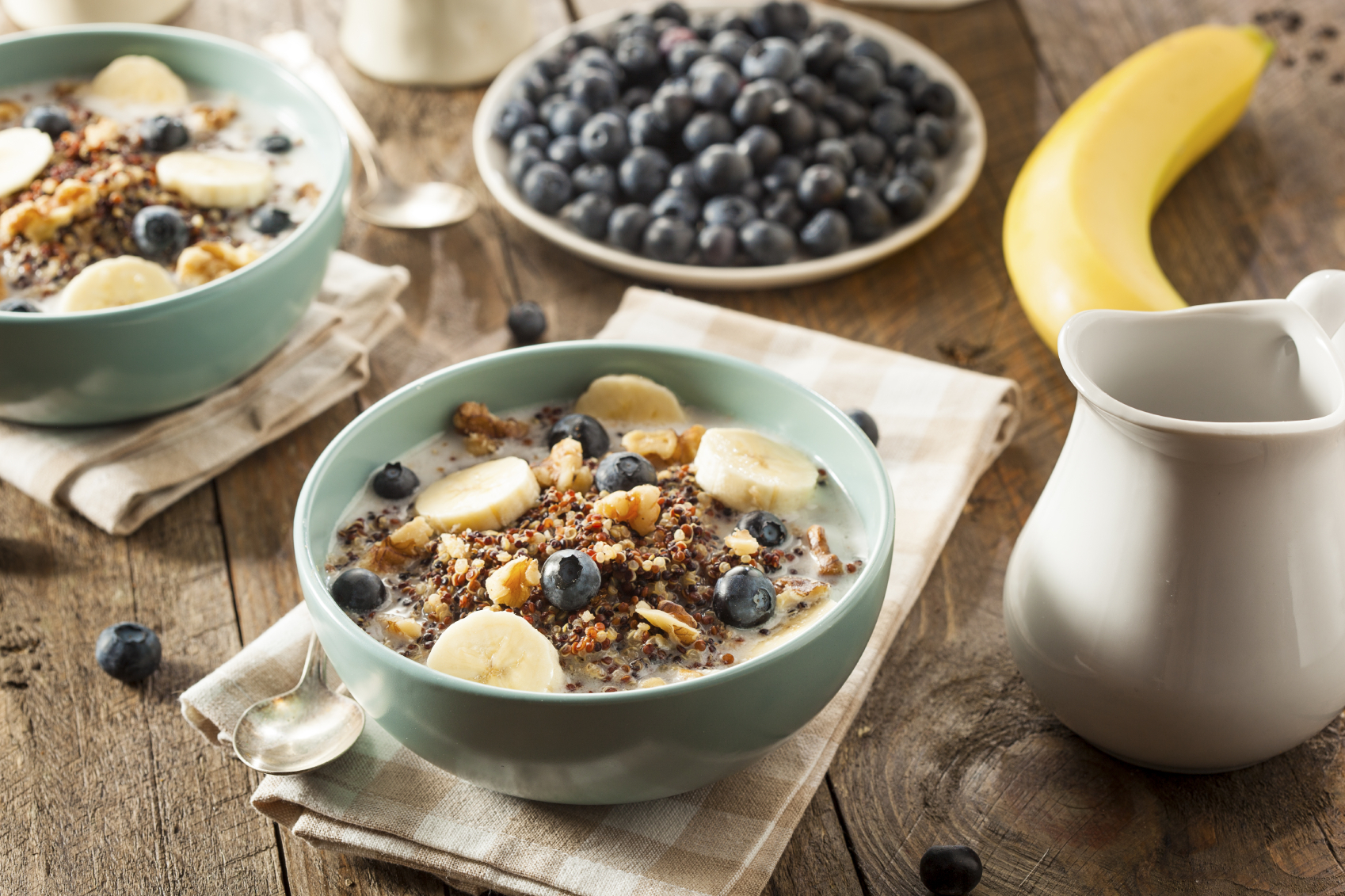
Researchers at the University of Bath analysed the links between breakfast and health for individuals classed as obese, comparing the results from a fasting group with a breakfasting group.
Eating breakfast did not make obese individuals lose weight but did result in more physical activity in the morning and reduced food intake later in the day – meaning both groups ate similar amounts overall.
The researchers said that increasing activity is one of the most important ways to improve health in an increasingly sedentary population.
These latest results in this obese group build on previous studies at the university into the effects of eating breakfast for a lean population.
Both studies form part of the three-year Bath Breakfast Project – which is funded by the Biotechnology and Biological Sciences Research Council – and, put together, these insights are being billed as some of the most comprehensive to date into the effects of eating breakfast.
Lead researcher Dr James Betts said the study wanted to examine possible links between breakfast, body weight and health.
“Despite many people offering opinions about whether or not you should eat breakfast, to date there has been a lack of rigorous scientific evidence showing how, or whether, breakfast might cause changes in our health,” he said.
“Our studies highlight some of these impacts, but ‘how important’ breakfast is still really depends on the individual and their own personal goals.
“For example, if weight loss is the key there is little to suggest that just having breakfast or skipping it will matter.
“However, based on other markers of a healthy lifestyle, like being more active or controlling blood sugar levels, there’s evidence that breakfast may help.”
To conduct the obesity trial the researchers split individuals aged 21 to 60 into two groups – fasting and breakfasting – and measuring many outcomes during a six-week period.
Most existing research is limited just to surveys of vast numbers of people and by contrast this research involved intensive testing of a focused group under tightly-controlled conditions – so the relevant effects on the body can be studied without needing to test thousands of people.
The breakfasting group in this study was asked to eat at least 700kcal by 11am, with the first half of this consumed within at least two hours of waking. The fasting group were only allowed water until noon.
While the researchers’ latest work has revealed the effects of eating breakfast versus fasting, they allowed people to choose what they wanted to eat for breakfast.
They now want to conduct further experiments comparing different breakfast types.
From this they hope to make recommendations as to the kind of food sources and nutrients that might work best for health.
Dr Enhad Chowdhury, the study’s lead author, added: “It is important to bear in mind that not everybody responds in the same way to breakfast and that not all breakfasts are equal.
“The effects of a sugary cereal compared to a high protein breakfast are likely to be quite different.
“As we progress the Bath Breakfast Project we want to narrow down the effects of different types of breakfast upon health.”
The study is published in the American Journal of Clinical Nutrition.

Enjoy the convenience of having The Sunday Post delivered as a digital ePaper straight to your smartphone, tablet or computer.
Subscribe for only £5.49 a month and enjoy all the benefits of the printed paper as a digital replica.
Subscribe